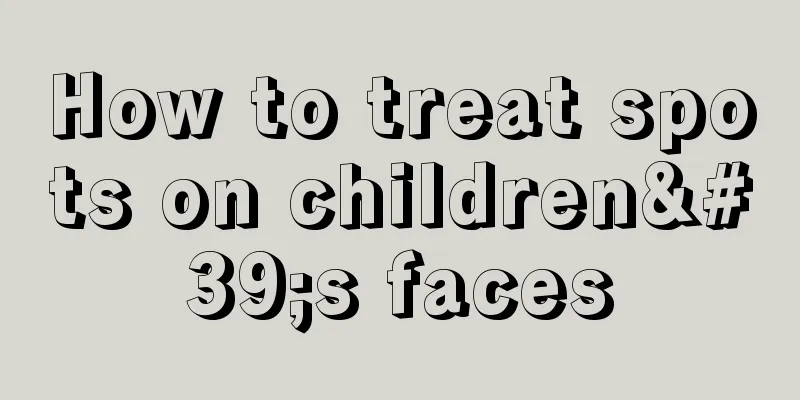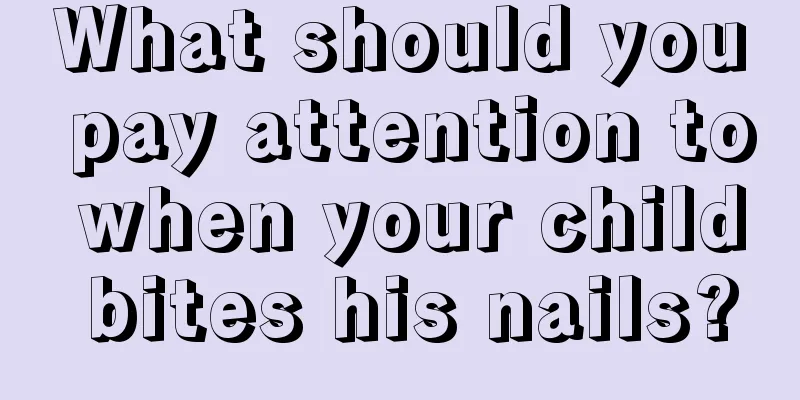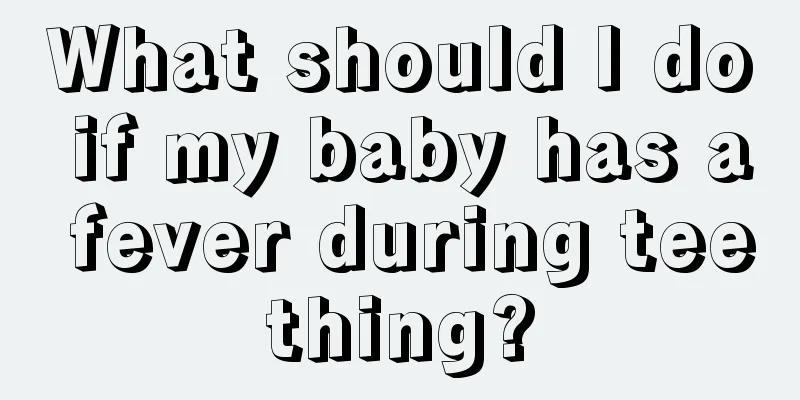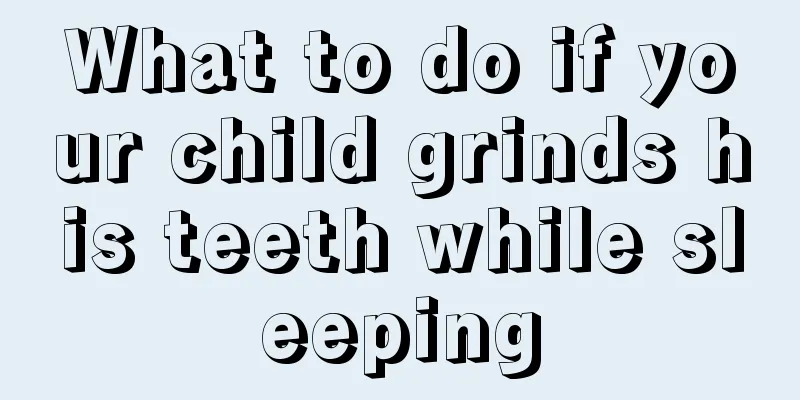12 symptoms of teething in babies
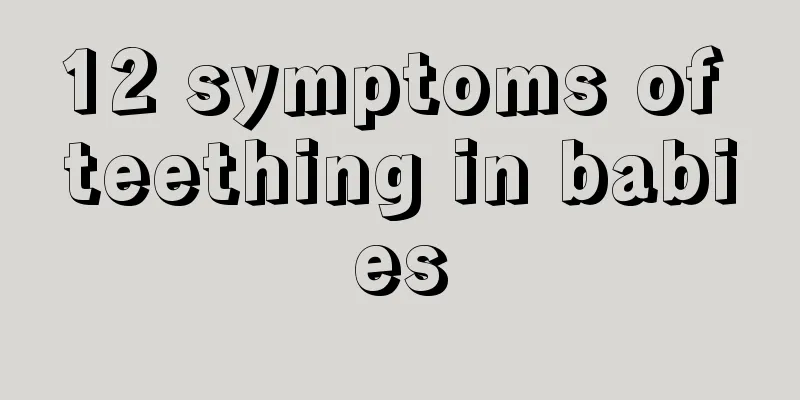
|
When the baby is three or four months old, he is relatively bigger. Although it is easier to hold him at this time, he will start to drool due to teething. It is often seen that the baby bites his fingers, and he is also prone to bite the mother's nipple when feeding breast milk. This is because the area around the baby's gums is itchy and the baby bites it. You can buy some pacifiers for the baby to bite and play with, which can relieve the baby's crying. 1. Drooling. Babies start drooling around ten weeks to three or four months old, and teething particularly stimulates saliva secretion. 2. Rash on the chin or face. Your baby's chin and facial skin may develop allergic rashes due to long-term contact with saliva. To avoid this phenomenon, you should wipe the baby's saliva frequently. When your skin is dry, apply a gentle lotion to moisturize it. 3. Mild cough. Too much saliva can cause your baby to regurgitate or cough. As long as it's not a cold or allergies, it doesn't matter. 4. Bite. A teething baby may bite anything and everyone he sees—from his own hand to his mother's nipple to a stranger's finger—in an attempt to relieve the pressure of the growing tooth under his gums by applying the force of chewing. 5. Pain. Inflammation is the only way the delicate gum fibers cope with the approaching tooth, and for some babies it can be extremely painful, while for others it feels nothing at all. It is especially uncomfortable when the first teeth and molars grow (but molars only grow after about one year old). 6. Irritable. As the tip of the tooth gets closer to the top of the gum, the inflammation becomes more severe and the constant pain makes the baby irritable. 7. Refusing to eat. Teething babies often become fussy when feeding. He may appear eager to suck milk because he really wants to put something in his mouth, but once he starts sucking milk, his gums will hurt due to the sucking action, so he will appear to have no interest in sucking milk. Babies who have already started eating solid foods may also refuse solid foods and need to rely on breast milk or formula to supplement their nutrition. If your baby refuses to eat seriously, you should take him to see a doctor. 8. Diarrhea. Some doctors agree that diarrhea and teething are related - perhaps swallowing too much saliva causes loose stools; others deny this. Regardless of whether there is a connection or not, parents should not ignore their baby's diarrhea. 9. Mild fever. As with fever and diarrhea, doctors have different opinions on the cause. However, gum inflammation can cause a mild fever (less than 38.3 degrees C). If the fever lasts for more than three days, you should still see a doctor. 10. Insomnia. Babies often stay awake all night due to teething discomfort. If your baby suddenly wakes, don't rush to comfort or feed him. Wait until he can calm down on his own. This situation often occurs when the first teeth and molars grow. 11. Bleeding gums. Sometimes, teething can cause bleeding in the gums, forming a bruise-colored tumor. This is nothing to worry about, and most doctors recommend that they be allowed to break down naturally. Cold compresses can reduce pain and speed up the recovery of internal bleeding. 12. Pull the ears and rub the cheeks. The pain in the gums may be transmitted along the nerves to the ears and jaws, especially when the molars are growing, so the baby may scratch his ears or touch his cheeks. |
<<: What should I do if my child has phimosis?
>>: What is phimosis in children?
Recommend
What are the precautions for cutting children's hair
Although superstition is bad, all parents hope th...
Child sweating and coughing while sleeping
In daily life, many babies are prone to sweating ...
What should I do if my child has no appetite?
If a child cannot eat well and has no appetite, i...
What should I do if my baby cries at night after weaning?
It is very difficult to wean a breastfeeding baby...
What to do if your 3-year-old baby stutters
When the baby is just starting to learn to speak,...
What method should be chosen to treat the sequelae of polio?
There are many diseases in the world that make pe...
What to do if a child has a headache and vomits
Now is the hot and changeable period of summer, a...
Reasons why babies shake their heads when they sleep
Many mothers encounter a lot of troubles in the p...
What is the standard of the children's height and weight comparison table?
After the baby is born, he will be cared for by h...
Treatment for baby's night fussing
The problem of babies making noises at night will...
Is it okay for babies to use air conditioning in winter?
Winter is a difficult season for younger babies. ...
Normal neonatal breathing and consequences
With the development of the times and the impleme...
11 months old baby milk powder
Baby's milk powder is formulated with differe...
What should I do if my baby drinks eye drops?
Young children have just been in the world for a ...
What are the symptoms of heart disease in children?
Some children already have heart disease when the...

